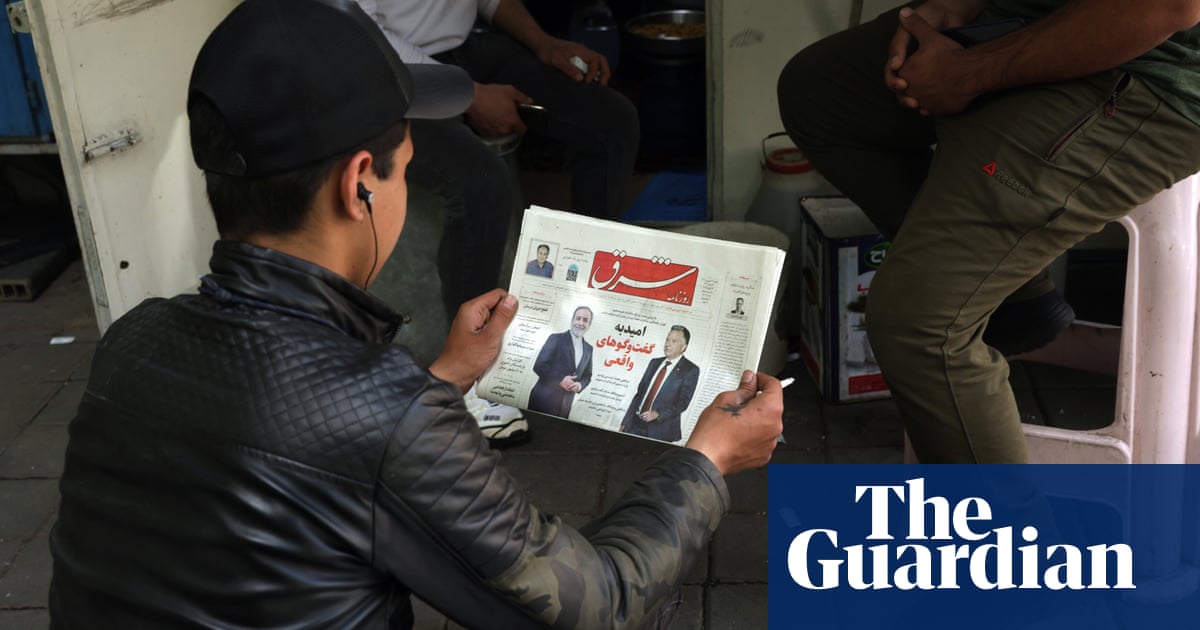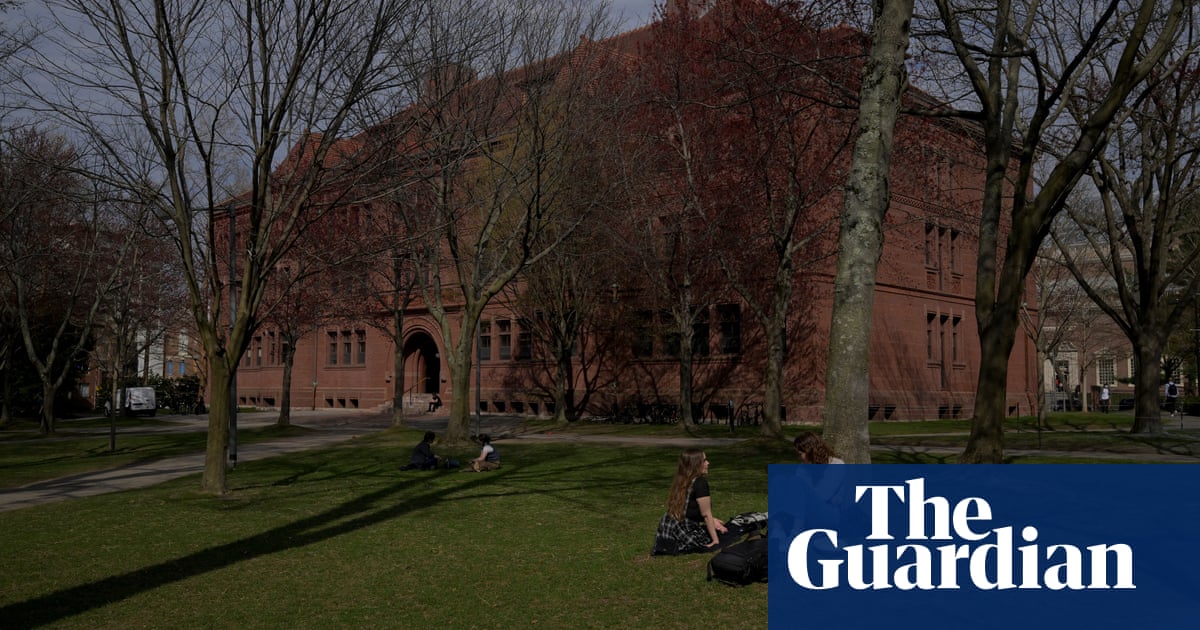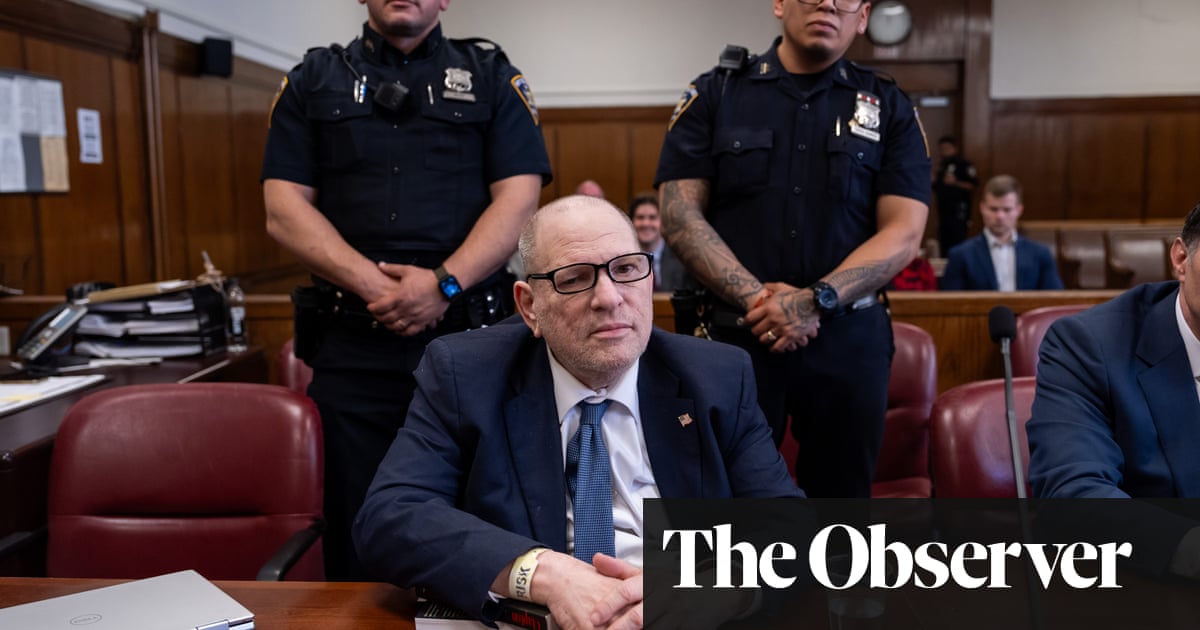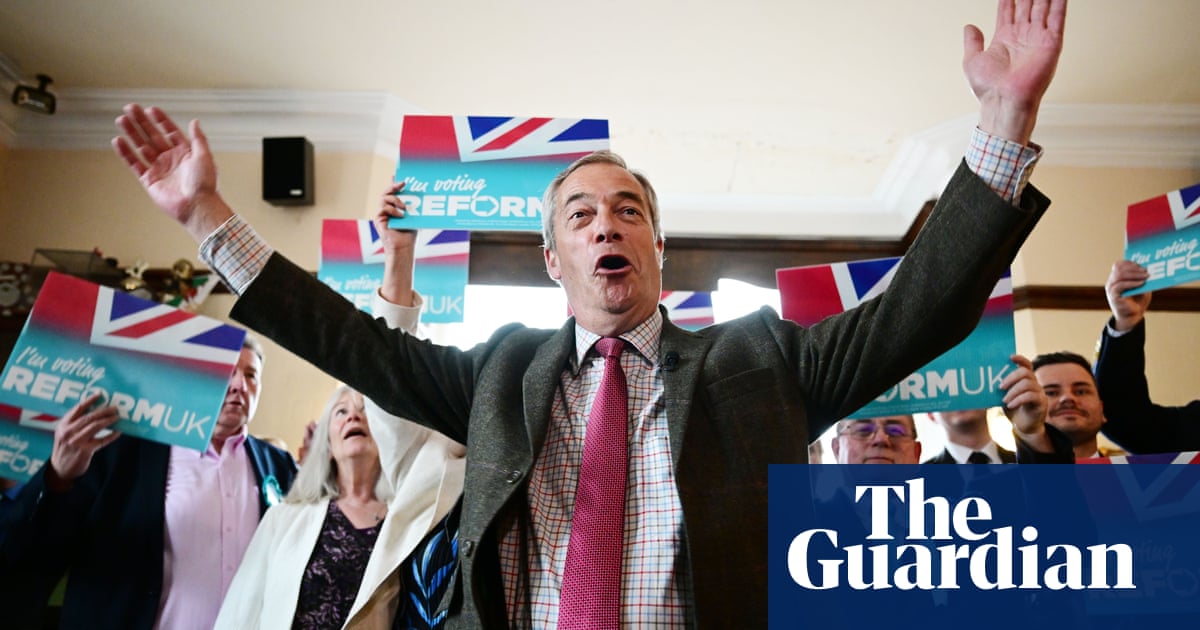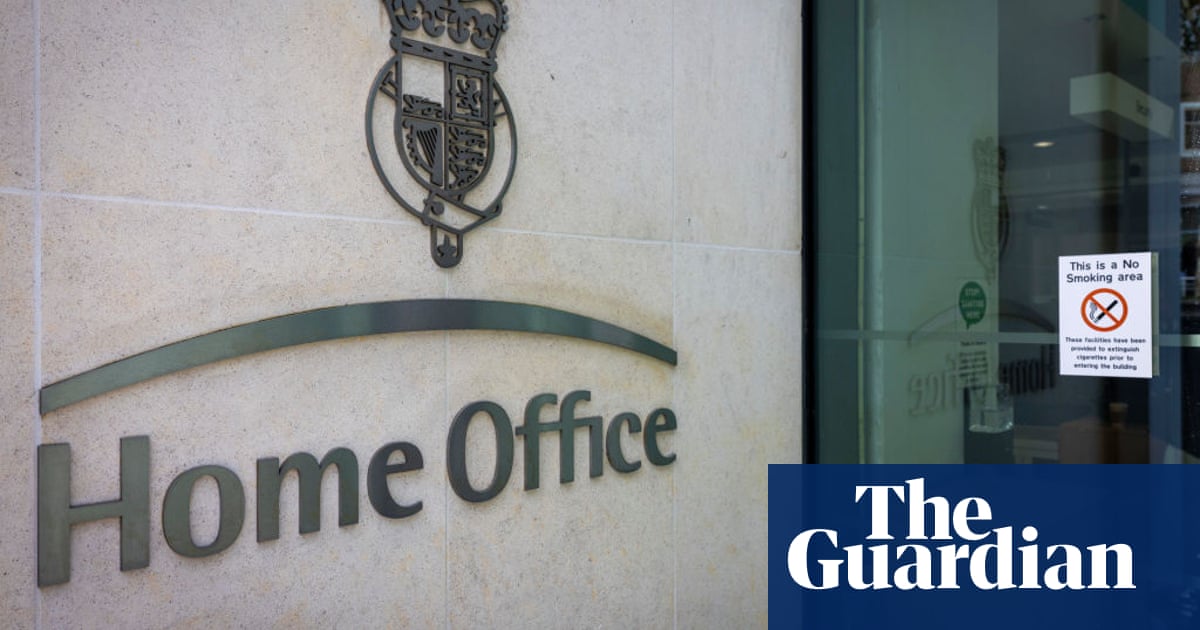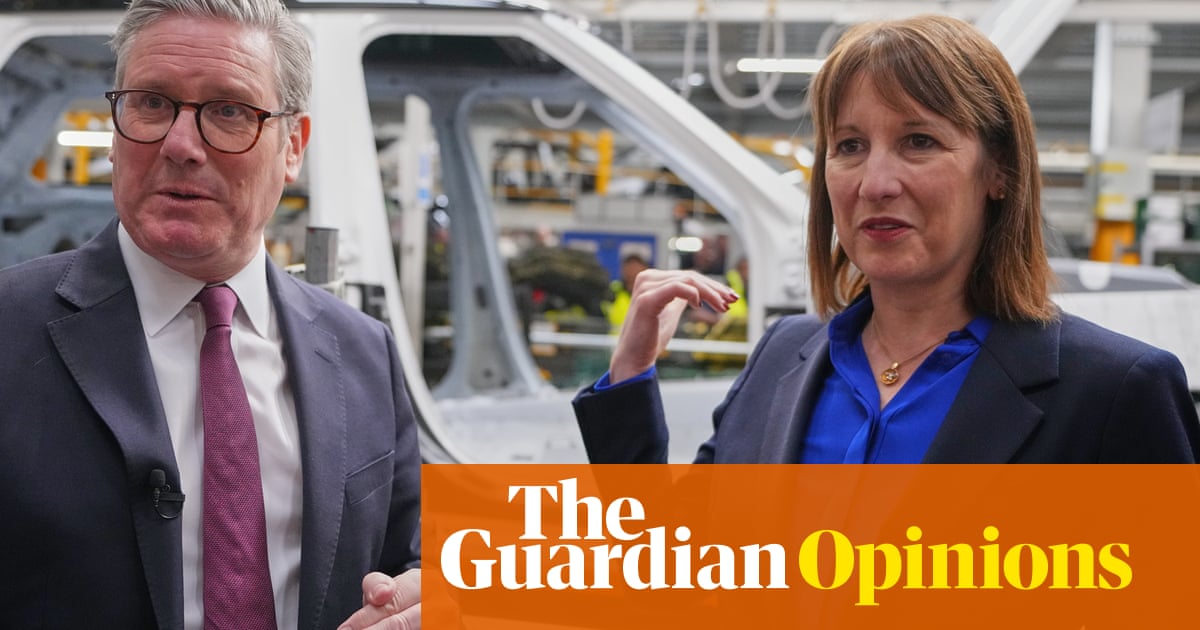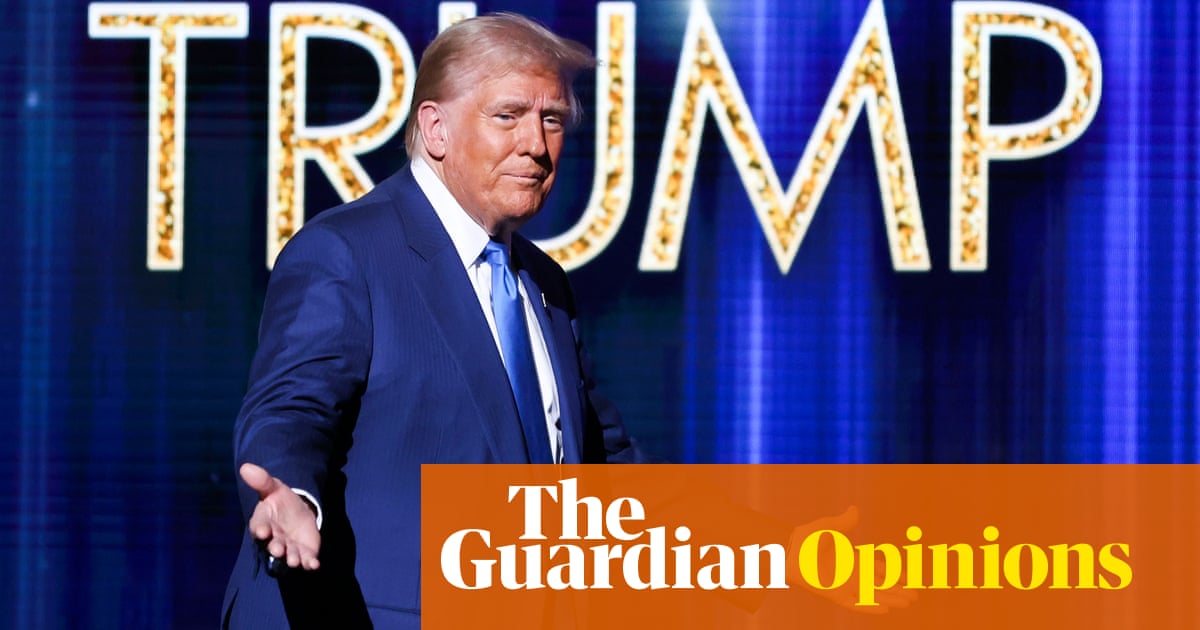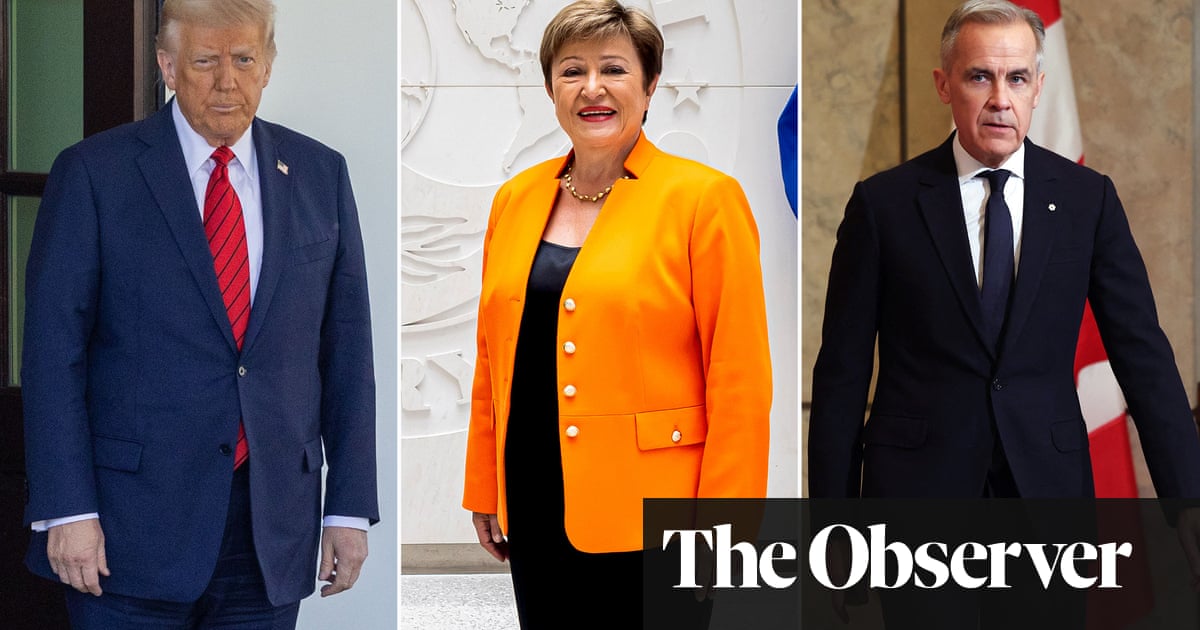Reeves rejects Lib Dem call for government to launch 'Buy British' campaign
Rachel Reeves, the chancellor, has declined to back Lib Dems calls for the government to launch a ‘Buy British’ campaign.
During Treasury questions, the Lib Dem deputy leader and Treasury spokesperson Daisy Cooper asked the government to “commit to a ‘Buy British’ campaign as part of a broader national effort to encourage people to buy British here at home”.
In response, Reeves replied:
In terms of buying British, I think everyone will make their own decisions. What we don’t want to see is a trade war, with Britain becoming inward-looking, because if every country in the world decided that they only wanted to buy things produced in their country, that is not a good way forward.
Key events Show key events only Please turn on JavaScript to use this feature
Starmer tells cabinet trade framework created by Trump tariffs 'not a passing phase'
Keir Starmer has restated his belief that the Trump tariffs, or at least the global trade framework that they are creating, are here to stay. Speaking to cabinet this morning, he said the new era for the global economy created by US protectionism was “here to stay”. In its readout from cabinet, Downing Street said:
The prime minister updated cabinet on the response to President Trump’s implementation of further tariffs last week and reflected on his and the chancellor’s visit to Jaguar Land Rover yesterday where he saw first-hand the impact that tariffs were having, and underlined the government’s resolve to protect our key industries and support the wider economy. He reiterated that businesses have been clear they want a calm and pragmatic response from the government, continued dialogue with the US on an economic deal, while making preparations for all of the options available in response.
The prime minister said this new era for the global economy was not a passing phase, and was why we must act to accelerate our industrial policy to strengthen the UK as a place to invest, and that the announcements yesterday to support electric vehicle production and reduce the time it takes to deliver clinical trials were examples of an active state delivering a more secure economy.
Alex Burghart, the shadow Cabinet Office minister, asked Benn if he was confident that the duty reimbursement scheme would be able to cope with the possible volume of applications it might get if the EU does impose tariffs on the US, impacting exports going to Northern Ireland.
In response, Benn said the government had been “preparing for and looking at all eventualities”. He said imports from the US accounted for about 2% of Northern Ireland’s total purchases.
Hilary Benn tells MPs firms in Northern Ireland can get refunded if they have to pay EU tariffs on goods from US
In the Commons Hilary Benn, the Northern Ireland secretary, is responding to an urgent question from the Conservatives about the impact EU tariffs on the US would have on Northern Ireland.
Under the post-Brexit trade deal for Northern Ireland, the Windsor framework, if the EU imposes tariffs on the US, that tariff would apply to US goods being imported into Northern Ireland.
Businesses would have to pay the tariffs. But they could apply for refunds for goods that were not going to enter the EU market.
Benn explains how this work. And he says there is also a customs duty waiver scheme, subject to an overall limit.
He goes on:
These schemes work in our national interest, and HMRC is continuing to talk to and support any businesses that might be affected, to help them understand how to use the duty reimbursement and customs duty waiver schemes.
The Minister for the Cabinet Office [Nick Thomas-Symonds] has talked about all this with EU counterparts in recent days, because the government is fully aware of how sensitive this issue is for businesses in Northern Ireland.
What we need in these circumstances is a calm and considered response, and that is what the government will continue to provide.
Reeves rejects call from Labour Treasury committee chair, Meg Hillier, for fiscal rules to be revised
Meg Hillier, the chair of the Commons Treasury committee, has suggested the government should change its fiscal rules to allow more borrowing as a response to the problems facing the global economy.
Speaking during Treasury questions in the Commons, Hillier said:
Since the spring statement, the world has been rocked by the announcements by President Trump on tariffs last week. It’s an event that is as significant as the financial crisis of 2008 or indeed perhaps as Covid.
In those instances the state unleashed everything it could to try and resolve those issues. Is the chancellor considering changing any of her rules in order to make sure that everything that the state can throw at this problem is being done?
In response, Reeves said:
It is incredibly important to retain cool heads at this moment. Tariffs have been imposed and we are working closely with our friends and counterparts in the United States to reduce the impact on those, not just in the UK, but around the world as well.
The fiscal rules are very important for giving our country the stability it needs. We saw what happened when the previous government lost control of the public finances. It resulted in interest rates going through the roof, meaning higher costs for businesses and for working families.
We won’t make those mistakes. That’s why the fiscal rules are non-negotiable, and stability for this government is sacrosanct.
When Anneliese Dodds resigned as development minister, she also suggested the government should revise its fiscal rules, which are blamed for restricting government borrowing. In private, many Labour MPs probably agrees.
But the Treasury argues that it is not the fiscal rules that restrict government borrowing, but the high level of government debt, which means the government is spending £100bn a year on debt interest. Even if the rules allowed more borrowing, the bond markets would probably make this unaffordable, the Treasury believes.
Reeves rejects Lib Dem call for government to launch 'Buy British' campaign
Rachel Reeves, the chancellor, has declined to back Lib Dems calls for the government to launch a ‘Buy British’ campaign.
During Treasury questions, the Lib Dem deputy leader and Treasury spokesperson Daisy Cooper asked the government to “commit to a ‘Buy British’ campaign as part of a broader national effort to encourage people to buy British here at home”.
In response, Reeves replied:
In terms of buying British, I think everyone will make their own decisions. What we don’t want to see is a trade war, with Britain becoming inward-looking, because if every country in the world decided that they only wanted to buy things produced in their country, that is not a good way forward.
After Treasury questions there will be an urgent question on the impact of EU tariffs on the US on Northern Ireland.
That will be followed by two statements: from safeguarding minister Jess Phillips on child sexual abuse, and from the business minister Gareth Thomas on the Horizon compensation scheme for post office operators.
In her statement to MPs Rachel Reeves, the chancellor, also said she would be holding talks with the Indian government tomorrow “as part of our two nations’ economic and financial dialogue as we seek to secure a new trade deal with India”.
Reeves tells MPs government focusing most on cutting US additional tariffs on UK cars and steel
In the Commons, responding to Mel Stride, Rachel Reeves, the chancellor, said that discussions with the US were continuing on a trade deal and that she would be meeting Scott Bessant, the US treasury secretary, “shortly”.
Referring to the talks, she said:
The focus is on reducing tariff and non-tariff barriers to trade, with a particular focus on those sectors that are subject to the higher tariffs.
Because although the 10% tariffs are lower than many other countries’ around the world, and we welcome that, the additional tariffs on cars, on steel, and potentially on life sciences, pose a real challenge to our country, because those are some of our biggest export markets.
Reeves said the government was also concerned about the risk of “dumping” (goods being sold cheaply in the UK, because tariffs have made them too expensive for the US, at a risk to UK producers). But the government’s “first priority is not to create more trade barriers, but to reduce the ones that exist today”, she said.
In the Commons Mel Stride, the shadow chancellor, said the Conservatives would do whatever they could to help the government lower the US tariffs imposed on the UK. He said:
Free trade has been the bedrock of prosperity for our country, and many countries around the world, for decades. It has raised billions out of poverty. Tariffs are the enemy of free trade, and we on this side of the house will do whatever we can to assist the government in getting those tariffs down.
Reeves tells MPs Bank of England governor has assured her 'markets functioning effectively' despite tariffs crisis
In the Commons Rachel Reeves, the chancellor, is taking questions. Unusually, she opened with a mini statement about the Trump tariffs. It largely echoed what Keir Starmer said in his speech yesterday, with Reeves saying the government would respond in a calm, pragmatic manner, focusing on the national interest but also keeping “nothing off the table” in terms of possible retaliation.
But Reeves also said she had spoken to Andrew Bailey, governor of the Bank of England, this morning. She said:
The United States’ decision to impose tariffs has had and will continue to have huge implications for the world economy.
These implications have been reflected in the reaction that we’ve seen in global markets in recent days, which the financial authorities have of course been monitoring closely.
This morning I spoke to the governor of the Bank of England, who has confirmed that markets are functioning effectively and that our banking system is resilient.

 1 week ago
23
1 week ago
23
